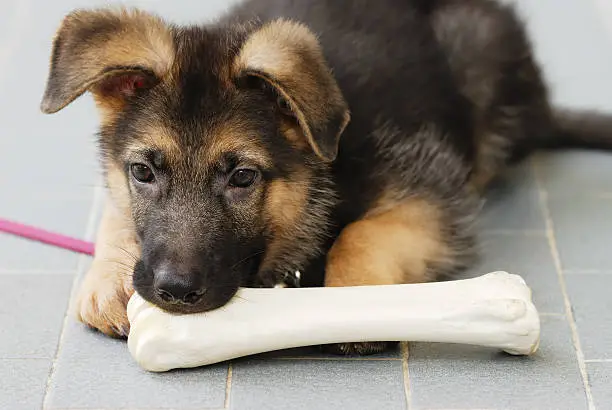Signs of arthritis in older German shepherds
German Shepherds are known for their strength, intelligence, and loyalty, making them a beloved breed among dog owners. As these magnificent animals age, they, like all living beings, can face certain health challenges. One common ailment that older German Shepherds may encounter is arthritis. Arthritis, a condition characterized by inflammation of the joints, can significantly affect your furry friend’s quality of life. In this article, we will explore the signs of arthritis in older German Shepherds and provide guidance on how to manage this condition to ensure your loyal companion remains as comfortable and happy as possible.
Furthermore, recognizing the signs of arthritis in older German Shepherds is essential for ensuring their well-being and comfort. By staying vigilant and seeking early veterinary care, you can help manage your dog’s arthritis and provide them with a fulfilling and pain-free senior life. Come along as we elaborate more on the signs of arthritis in older German shepherds.
Pet MD – Dog Ear Cleaner Wipes are excellent products worth purchasing. Veterinarians created Pet MD Ear Wipes, which are infused with calming chemicals, to make cleaning your pet’s ears quicker and more convenient. Cleaning wipes also remove debris and surplus wax to stop the formation of organic growth and avert ear issues. Buy now
Understanding Arthritis in German Shepherds
Arthritis is a degenerative joint disease that affects both humans and animals. In German Shepherds, as they age, the cartilage that cushions their joints may start to break down. This leads to pain, stiffness, and also reduced mobility, making everyday activities more challenging for your canine companion. It’s essential to be aware of the signs of arthritis in older German Shepherds so that you can take proactive steps to manage the condition.
Recognizing the Signs of arthritis in older German shepherds
Some Signs of arthritis in older German shepherds include:
- Limping or Favoring a Leg
One of the most noticeable signs of arthritis in older German Shepherds is a visible limp or an increased effort to move. If your once energetic dog is now favoring a specific leg or has difficulty getting up after lying down, it could indicate joint discomfort.
- Stiffness and Reduced Mobility
Arthritis can make it difficult for your German Shepherd to move freely. You might observe a decreased range of motion in their joints, particularly noticeable when they attempt to stand up, climb stairs, or jump onto furniture.
- Reluctance to Exercise
If your once enthusiastic and active German Shepherd now seems less interested in physical activities like fetch, running, or playing, it could be due to arthritis-related pain. They might even avoid engaging in activities they used to enjoy.
- Behavioral Changes
Arthritic pain can lead to behavioral changes in older German Shepherds. They may become irritable, restless, or even aggressive due to their discomfort. Conversely, some dogs become more withdrawn or exhibit signs of depression.
- Licking or Chewing Joints
Dogs may try to alleviate their discomfort by licking or chewing at their painful joints. While some grooming is normal, excessive licking in a localized area could be a sign of arthritis-related discomfort.
- Muscle Atrophy
Arthritis can lead to muscle wasting (atrophy) around the affected joints. If you notice a reduction in muscle mass in your German Shepherd’s legs or other joints, it could also be indicative of arthritis.
- Changes in Posture
Arthritis may cause your dog to adopt an altered posture to compensate for the pain. This can include a hunched back or an uneven gait.
Managing Arthritis in Older German Shepherds
While arthritis cannot be cured, there are several strategies you can employ to help manage your older German Shepherd’s condition and improve their quality of life. This includes:
1. Consult a veterinarian
If you suspect your German Shepherd has arthritis, the first step is to consult a veterinarian. A professional diagnosis will ensure that the symptoms you’re observing are indeed due to arthritis and not another underlying issue. Your vet can recommend appropriate treatment and management strategies tailored to your dog’s specific needs.
2. Pain Management
Your veterinarian may prescribe pain-relieving medications or supplements to help alleviate your German Shepherd’s discomfort. Non-steroidal anti-inflammatory drugs (NSAIDs) are often used to reduce inflammation and pain. However, it’s crucial to administer medications only under the guidance of a veterinarian, as some drugs can have side effects.
Pet MD – Dog Ear Cleaner Wipes are excellent products worth purchasing. Veterinarians created Pet MD Ear Wipes, which are infused with calming chemicals, to make cleaning your pet’s ears quicker and more convenient. Cleaning wipes remove debris and surplus wax to stop the formation of organic growth and avert ear issues. Buy now
3. Weight Management
Maintaining a healthy weight is vital for managing arthritis. Extra weight also places additional stress on the joints, exacerbating pain. Work with your vet to develop a balanced diet and exercise plan that helps your German Shepherd maintain a healthy weight.
4. Physical Therapy and Exercise
Gentle exercise and physical therapy can help keep your dog’s joints mobile and strengthen supporting muscles. Low-impact activities like swimming and controlled walks can be beneficial. However, avoid high-impact activities that could worsen joint damage.
5. Orthopedic Bedding
Providing your German Shepherd with a comfortable, orthopedic bed can help reduce pressure on their joints while sleeping or resting.
6. Joint Supplements
Joint supplements containing ingredients like glucosamine and chondroitin can also support joint health and reduce arthritis-related symptoms. Always consult your vet before adding supplements to your dog’s regimen.
7. Warmth and Comfort
Provide warm and cozy spaces for your dog to rest, especially during colder months. Warmth can help alleviate joint stiffness and discomfort.
8. Environmental Modifications
Make adjustments to your home environment to accommodate your dog’s limited mobility. Consider adding ramps or stairs to also help them access elevated surfaces more easily.
9. Regular Vet Checkups
Arthritis is a progressive condition, and your dog’s needs may change over time. Regular checkups with your veterinarian will also allow for adjustments to the treatment plan as necessary.
Pet MD – Dog Ear Cleaner Wipes are excellent products worth purchasing. Veterinarians created Pet MD Ear Wipes, which are infused with calming chemicals, to make cleaning your pet’s ears quicker and more convenient. Cleaning wipes also remove debris and surplus wax to stop the formation of organic growth and avert ear issues. Buy now
Conclusion
In conclusion, watching your loyal and beloved German Shepherd experience the challenges of aging and arthritis can be difficult. However, by recognizing the signs of arthritis and taking proactive steps to manage the condition, you can help ensure that your furry friend enjoys a comfortable and fulfilling life in their later years. Regular veterinary care, appropriate medication, exercise, and a supportive environment all play crucial roles in helping your older German Shepherd navigate the complexities of arthritis while continuing to be the wonderful companion they’ve always been.
Important Affiliate Disclosure
We at doglinked.com are esteemed to be a major affiliate for some of these products. Therefore, if you click any of these product links to buy a subscription, we earn a commission. However, you do not pay a higher amount for this. Rest easy as the information provided here is accurate and dependable.






